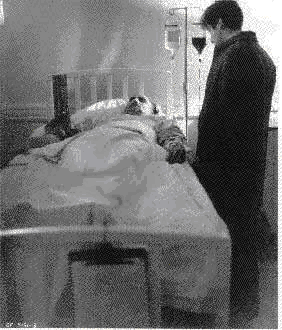 |
ASSISTED SUICIDE |
By RACHAEL HALL On the November 22, 1998 broadcast of 60 Minutes, Dr. Jack Kevorkian, also known as Dr. Death, allowed the airing of a videotape documenting the assisted suicide of a patient in the final stages of a terminal disease. A CBS poll released two days after the airing of the episode found that 40% of the respondents thought Kevorkian should receive no punishment and 25% thought that he should receive a lesser charge than murder. The public has become more supportive of assisted suicide since Dr. Kevorkian first made headlines, with a recent Gallup Poll finding that seventy-five percent of Americans support euthanasia for certain terminally ill patients. In the words of former Oregon governor Barbara Roberts, “Death came out of the closet.” Why then is assisted suicide still illegal in forty-nine of the fifty United States? |
While the majority of United States citizens and physicians feel that assisted suicide should be legal, critics have been very vocal in their opposition, particularly the politically influential Catholic Church. It is impossible to completely dismiss all of the issues these critics raise. Upon further examination, however, they simply show that strict guidelines need to be contemplated and established to ensure that assisted suicide remains limited and regulated and that vulnerable groups are not exploited. Rather than completely abandoning Right to Die legislation, we need to recognize that assisted suicide is by nature a complicated matter, but that this does not mean that it is not appropriate and necessary. WHOSE RIGHT IS IT ANYWAY? The government should never enact laws that restrict the |
freedom of citizens any more than is necessary, and right-to-die matters are no exception. So long as no one else is being hurt in the process, individuals should be able to choose what they wish to do with their lives. In the words of philosopher John Stuart Mill, “Over himself, over his own body and mind, the individual is sovereign.” The Declaration of Independence entitles United States citizens, including terminally ill patients, to life, liberty, and the pursuit of happiness. Patients with incurable illnesses should have the right to end their life before getting to a point where their pursuit of happiness and quality of life are compromised. No one, patient nor doctor, is forced to participate in assisted suicide. It is an extremely private and personal matter that every individual should have the right to decide for themselves. The most common reason terminally ill patients request assisted suicide is fear of loss of |